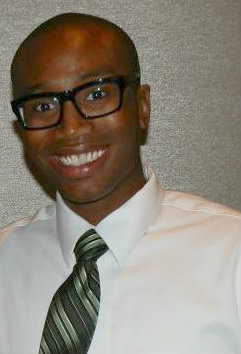In February 2014’s edition of Parks & Recreation Magazine, Michael Bradley highlighted the value of developing a relationship with a professional mentor. Mentorship offers professionals an opportunity to listen, question and develop innovative strategies to serve their communities while advancing the profession. NRPA Young Professional and Administrator’s Network offers NRPA members the opportunity to participate in a mentoring program. My involvement in NRPA has afforded me the opportunity to be mentored by several mentors at the forefront of the field.
Let’s take a look at what constitutes a mentor, a mentee and how through mentorships you can COPE.

Kayode Lewis, CPRP shares his insight on the
importance of mentorship programs.
The Mentor
Colleagues who share the same position can also serve as mentors. A mentorship can form as a result of the informal interactions shared with a professional’s peers. Mentor and mentee share a mutually beneficial relationship. Regardless of their title, a mentor will align stakeholders to a shared goal and empower those around them to perform at a high level. They assist in building a culture that effectively responds to the needs of their communities.
The Mentee
Young professionals seeking a mentor are characterized by a strong desire to learn. These professionals compensate for their lack of experience by actively seeking alternative opportunities to expand their practical knowledge. Does your current position afford you opportunities to develop skills to effectively serve your community in the next 5, 10 or 15 years? The knowledge provided by the right mentor enhances your understanding of the parts that influence the operation of your agency. As a result, mentees gain an increased sense of the agency’s goals and their role in achieving the agency’s mission.
Membership in your state and/or national recreation association provides far more than access to workshops and networking events. Active involvement in these organizations offers a seat at the table with the innovators finding ways to enhance their community’s quality of life. The interaction gained through volunteering, getting involved in a committee or offering your assistance to a colleague places you in direct contact with a potential mentor.
Mentorship
The relationship forged with a mentor can develop over several years in a single place. You may assume a variety of positions in a variety of agencies throughout the course of your mentorship. In his book Mastery, author Robert Greene explains the goal of your mentorship is “not money, a good position [or] a title… but rather the transformation of your mind and character” (Green, 56).
The following steps will enable you to develop and get the most out of your mentorship experience, just remember to COPE:
1. Communicate (with style)
Communication is the key to getting the most out of your mentorship. Understanding how you and others communicate enables you to effectively listen and convey the meaning in your message. People exchange and interpret messages with one (or a combination) of the following communication styles. These styles influence the manner you send and perceive messages.
Fact based – Data driven
Values based – Message aligned to an individual or shared motivation.
Emotion based – Constructed by your feelings
Belief based – Message aligned to an assumption believed to be true
Each style offers a strategy for you to efficiently tailor your message to your audience. Take time to observe how others communicate and become aware of your own tendencies as you interact.
2. Observe
Seek opportunities to observe how your mentor interacts with others. What style of communication does s/he employ and with whom? Observing your mentor provides invaluable information about the culture of their agency and/or professional organization. Observation focuses your attention on the unwritten rules that govern interaction within the group. You should observe with no preconceived notions about how things “should” be. The questions you have going into the mentorship can change as a result of the time you spend observing someone with experience in action.
3. Practice
Involvement offers an avenue to practice the skills you may not be developing in your current position. You can start by volunteering on a committee in your state or regional association. Your mentor can also provide insight about the committees that will expand your horizons and expand your current set of skills. They can also refer you to professional peers interested in advancing the profession while expanding your respective networks.
Additional work can be tedious. However, additional rigor can be managed with the support of your mentor and like-minded professionals willing to put in the extra practice to become better. Guided practice makes you aware of your weaknesses. This information grounds you and enables you develop the necessary skills to improve.
4. Experimentation
Years of practice with the guidance of mentors will build your confidence to take on increased responsibilities in your agency and other professional organizations. Leaders keep and maintain relationships with their mentors. This stage also provides opportunities to develop ‘soft’ skills. Soft skills refer to the interpersonal, organizational and intercultural communication skills required to effectively communicate with colleagues and the community you serve. The skills developed in practice furnish you with a mindset that can adapt to an unknown future.
This stage also offers the chance to take what you have learned and pay it forward. Your past experience with a mentor has taught you how to learn. Finding new ways to empower other professionals furthers the profession and provides the means to serve additional citizens. The best way to thank your mentor is speak through the work they have enabled you to do. Where do I start? I strongly encourage any member of NRPA to sign on as a mentor and/or mentee today.
Kayode Lewis, M.Ed., CPRP serves as Program Recreation Coordinator for the Town of Medfield, MA Parks & Recreation Department. He develops youth and adult programs, coordinates various special events and leagues. He is 2012 NRPA Diversity Fellow and 2013 AAPRA Young Professional Extern.

